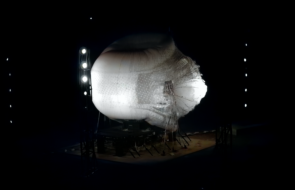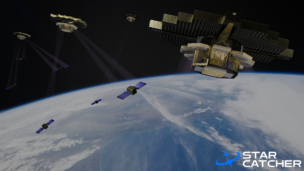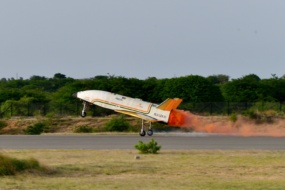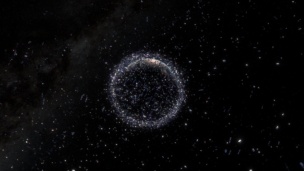If you’ve been wondering how you can contribute to space debris mitigation efforts, you may be in luck.
Privateer, a space debris tracking startup founded by Alex Fielding, Steve Wozniak, and Moriba Jah, has taken space sustainability efforts unto itself through its collision risk assessment tool, Wayfinder. Yesterday, Privateer announced it has partnered with consumer telescope maker Celestron to allow amateur astronomers to contribute to Wayfinder from home.
“The perfect partnership between us and Celestron is us being able to take advantage of crowdsourcing and citizen science by developing an application that leverages their own systems,” Jah, space environmentalist and chief scientist of Privateer, told Payload. “What we want to do with Celestron is have an application where anybody who has one of these [telescopes] can just put it on their deck or backyard or whatever, and they can start looking at the sky.”
Why space sustainability?
Jah and his high-profile team founded Privateer last year to help ensure that the space environment remains clean and operable for good. The startup sees mitigating space debris as an existential problem for humanity.
“Space environmentalism and sustainability looks like us doing everything that we can to minimize pollution in space,” Jah said. “It looks like us focusing on reuse and recycling of satellites, minimizing single-use satellites to develop a circular economy in space. It looks like us properly disposing of objects and not just letting these things reenter, leaving it to Mother Nature to cleanse.”
Finally, Jah said, “it also means that we as a global community come together to actually plan and coordinate the holistic use of the environment.”
Why citizen science? Jah has spent the better part of the last decade advocating for space sustainability. Though the people he speaks with are sympathetic to the cause, they generally don’t see any way they could personally move the needle.
“When I go around the globe talking to people about this, there’s a lot of ‘well, what the heck can I do? I’m just, you know, the average global citizen—how can I contribute to this?’” Jah said.
The partnership’s next steps
Privateer and Celestron will offer people the chance to meaningfully contribute to debris tracking using at-home telescopes. The details so far:
- Users can set up their Celestron telescope in their yard, and it will autonomously scan the sky for satellites and debris objects.
- The telescope will send these observations to Privateer, where they’ll be integrated into Wayfinder.
- From their homes, contributors will be able to track how their observations were used for collision avoidance and situational awareness.
Jah compared the crowdsourcing capability to a Waze for space. Instead of reporting a pothole or cop car by the side of the road, observers’ telescopes will report objects moving through the night sky.
“Because we can measurably demonstrate the utility of any given observation towards keeping track of objects, each person that contributes will know exactly what their contribution did,” increasing the transparency, predictability and accountability of these observations, Jah said.




